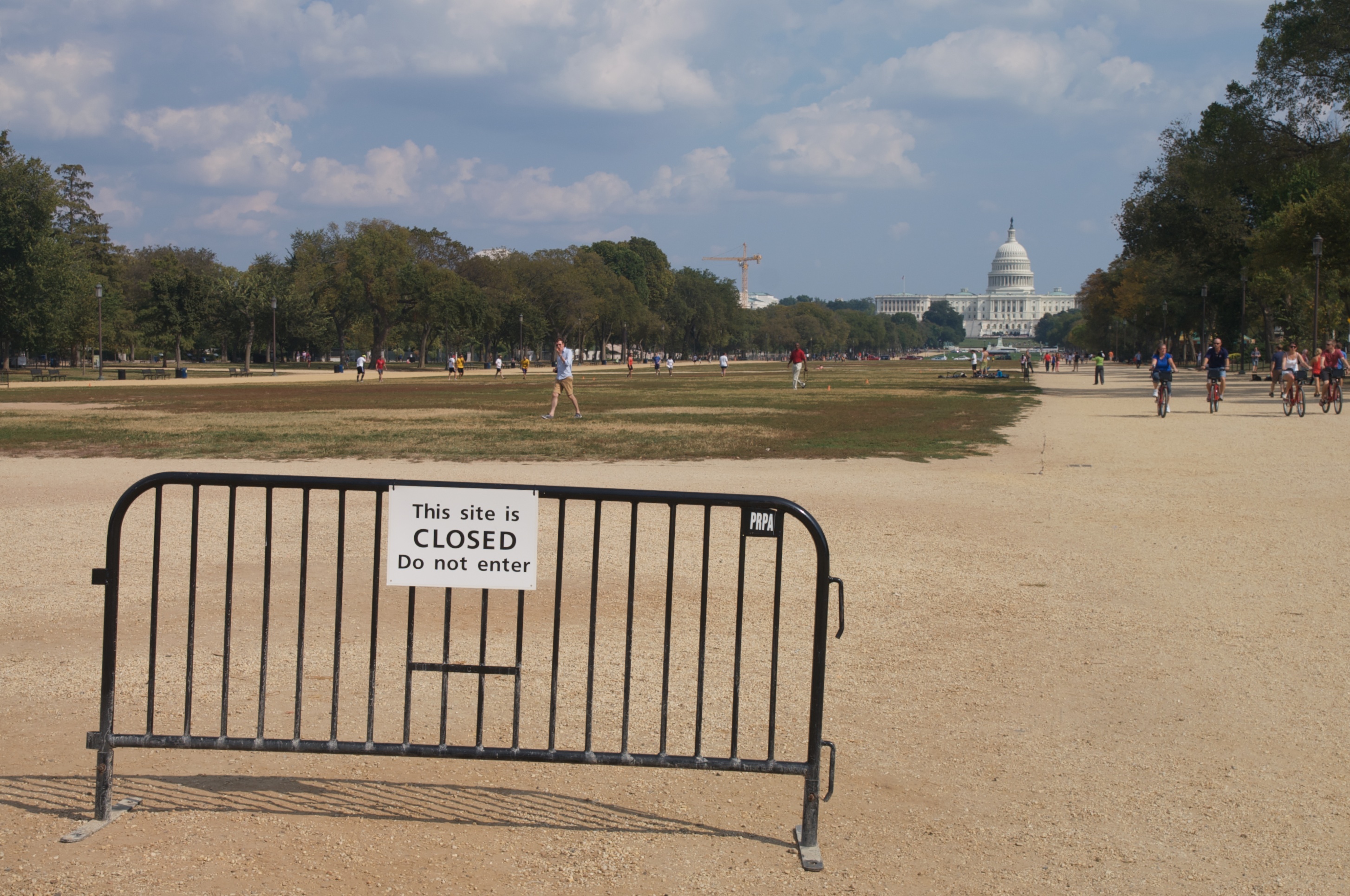
(Photo Source: http://www.investorplay.com/)
For the 16 days of the federal shutdown, the American public was inundated with stories of individuals not being able to go to work, pictures of closed monuments, and an idle panda cam in Washington, D.C. For many, the political gridlock seemed to be isolated to the metro D.C. area – a problem for Congress to address which would largely impact those in D.C.-based jobs.
However, the federal shutdown had far-reaching geographic impacts. It made a sizable dent in the US economy – and impacted a large number of Georgians. The economic effects of the shutdown are tremendous. According to Standard & Poor’s, the political stalemate subtracted 0.6 percent from the US GDP for the fourth quarter of 2013 – a cost equivalent of $24 billion, or $1.5 billion dollars a day. Moody’s Analytics projects that the shutdown cost Georgia 0.3 to 0.5 percent in the fourth quarter, removing an estimated $324 million from Georgia’s economy. Federal employees across Georgia were furloughed; employees at the Federal Law Enforcement Training Center in Glynco, Georgia were unable to come in to work, the Presidential Library at the Carter Center was shut down, and the Kennesaw Mountain National Park and a variety of campgrounds were closed. Perhaps most importantly, three-fourths of the employees at the Centers for Disease Control and Prevention (CDC) remained home while the CDC operated under a skeleton crew, with “significantly reduced capacity to respond to outbreak investigations, processing of laboratory samples, and maintaining the agency’s 24/7 emergency operations center,” according to the Department of Health and Human Services. The shutdown felt tangible on the commute into Atlanta, which was significantly less busy without CDC employees also driving into the city – but their absence left individuals vulnerable during outbreaks of salmonella and other public health crises during that time.
Federal employees were not the only ones impacted during the shutdown. Private-sector jobs that were closely tied to the government were also impacted. According to the White House, the travel and tourism industries were impacted by the closure of national parks and monuments, the oil and gas industries were impacted by a lack of permits for drilling, and the housing industry was impacted by the lack of IRS verifications for mortgage applications. In addition, a lack of confidence due to the approaching debt ceiling impacted investor confidence and consumer spending. At the University of Georgia, research projects were impeded by the closure of government websites, necessary for students’ class work and professors’ research papers.
The impacts that were created in Georgia were, in part, supported by those who represent Georgia in Congress. It is critical to remember that several of the congressmen who advocated for the government shutdown are also running in the Georgia State Senate race. In the article “32 Republicans who Caused the Government Shutdown,” “The Atlantic” identifies Paul Brown (R-Ga.) from Athens and Phil Gingrey (R-Ga.) from Marietta as two of the around 40 hard-line Republicans who refused to support any form of resolution to fund the government that did not also defund Obamacare. (“The Atlantic” compiled this list from a roster that the Senate Conservatives Fund – a conservative group aligned with shutdown-orchestrator Ted Cruz – created of individuals allied with him, cross-checking it against members who signed a letter demanding Speaker Boehner use the shutdown as a threat to defund Obamacare). Gingrey’s district includes employees at the Dobbins Air Reserve Base in Marietta and the nearby Kennesaw Mountain National Battlefield Park; Broun’s includes researchers at the University of Georgia benefiting from federal funding. Both are competing for a Senate seat in the 2014 election.
While not implicated in the above article, Representative Jack Kingston (R-Ga.) of Savannah, Georgia, who is also competing for the Senate seat, was also involved in the government shutdown. On his Senate campaign website, Kingston states, concerning federal issues on Capitol Hill: “We are in the midst of an enormous battle to defund Obamacare and reign in out of control D.C. spending that threatens our future generations… my Republican colleagues in the House and I are fully prepared to allow a government shutdown.” While Kingston was not identified as a hard-liner in the struggle over the shutdown, he voted against the re-opening bill that finally passed in the House of Representatives, put forward by Senate Majority Leader Harry Reid (D-Nev.), stating that it “failed to address the nation’s long-term spending problem.” The federal shutdown impacted thousands of workers at the King’s Bay Naval Base in Kingston’s district.
According to “The Hill,” Georgia voters opposed the government shutdown 61/31, and the shutdown seems to be impacting voters’ preferences for candidates in the Senatorial race. In polling, Democratic candidate Michele Nunn is tied at 42 percent with a generic Republican in the race, but when voters are told that three of her opponents supported the GOP position in the shutdown, she opens up a six percentage point lead.
The shutdown did not exist in a vacuum, and its impact is certainly not limited to Capitol Hill. In selecting the individual who will represent Georgians – federal employees, private industry, investors, and consumers alike – in the Senate, it is important to consider how each individual has behaved during the shutdown. The end of the shutdown marks the beginning of the Georgia Senate race, and our candidates’ actions speak louder than their words.

